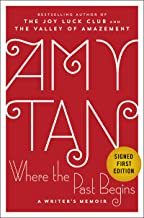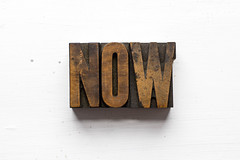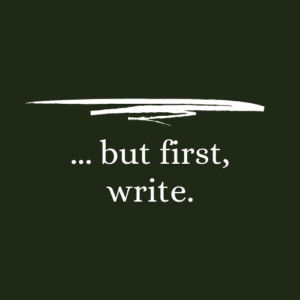How to Build a Writing Routine and Stick to It
The hardest part about writing is, well, writing. I
mean, the actual work of setting everything else aside – the laundry, the
dishes, bills, time with others – and putting your butt in a chair and writing.
If you are a writer, you have ambitions. You have ideas, lots of them. Your
creative well is probably bubbling over with all of the possibilities you could
write about, chapters for your novel-in-progress, you name it.
But the very act of sitting down and writing is hard. Writing
is so often an elusive act. It is very easy to do anything BUT write. Why?
What
holds us back from putting our butts in the chair and writing?
The roadblocks
I ask this question to writers in my writing workshops often –
what holds us back from doing the actual work of writing? You can probably
guess the most common responses.
Fear of failure. To avoid the risk of
failure, you simply don’t start. If you don’t start, you have nothing to fail
at. So often ideas present themselves so neatly packaged in our heads. When we
start trying to explore those ideas on the page, that pretty little package
starts to unravel. The idea as a whole seems perfect – and worth pursuing – in
our minds. But when the creative process takes over, watch out!
Distractions. There is always, always
something else to do. There will always be something else to do. My husband’s
family coined a term for my mother-in-law, who was never quite ready to leave
the house for school, for church, for vacation. Always, she had the case of
“first, I gotta …” You might think, I will start writing, but first I gotta
put away the dishes. Or, I will start writing, but first I gotta call my
mom. Distractions are sneaky. They often present themselves as absolutely
necessary when they absolutely aren’t. The dishes will still be there when
you’re finished writing. Your mom is (hopefully) not going anywhere.
Lack of intention. Which of
these scenarios are you more apt to show up for? 1) I’m going to work on my
novel. Or 2) I’m going to write 1,000 words on my novel. Setting
clear goals for each writing session gives you something concrete to
work toward. The stakes are higher if you failed to meet your specific writing
goal of the day than if you simply failed to write today.
Insecurity. We all have it: I’m not
good/smart/creative/fill-in-the-blank enough. If you bow to it, it will win
you over, every time.
An Orchestra of Ghosts
Every single one of us is vulnerable to these roadblocks. In her pep talk for this year’s National Novel Writing Month event, Anne Lamott tells us, “Writing is hard. I would personally rather do almost anything, but by the same token, nothing fills me with more relief and gratitude for having gotten that day’s work done.”
Writing is hard, no matter who you are – Anne Lamott or Jane
Doe. In her book, Where the Past Begins, Amy Tan writes: “Despite
my fluidity in conjuring up imagery, writing the actual narrative is a
laborious and confounding experience tantamount to conducting an orchestra of
ghosts or being the caterer for a wedding reception full of thieves and
drunks.”

So how do you show up for this hard work, time and time again?
The only way to finish a novel, essay, poem – you name it – is to actually sit
down and write. Not once, but over and over again. Every day, you have
to conquer the roadblocks. Just because you blow past them one day doesn’t mean
they won’t be there the next. Writing is a discipline, and that devilsh voice
that tries to keep you from it rarely sleeps.
Here are 4 ways to build a writing routine and stick to it:
Establish a ritual. Ritual invites predictability, a sense of ownership and even control. A ritual gives you a signal that it’s time to concentrate. Do it enough times and follow through, and you’ll start to believe in the power of the moments before you, because hey, you’ve been here before.
Your muse might be your friend, but it is an unreliable friend. To nurture a sustainable writing routine, you have to be the boss of your muse, not the other way around.
“You
tell your inspiration when to show up,” writer Allison Williams says.
Poet Craig Morgan Teicher says that “waiting to write until one is inspired is like waiting to have a drink of water until it rains.”
Somerset
Maugham famously said he only writes when inspiration strikes. “Fortunately, it
strikes every morning at 9 o’clock sharp,” he said.
Doing
the work builds confidence. “Nobody says, ‘I’m going to wait to go to the gym
until I get stronger,’” Williams points out.
Instead,
you go to the gym to get stronger.

The
same is true of writing. You write to grow as a writer. Repetition builds
response. Ritual teaches your brain that NOW is the time to write. You train
your brain to go until you say stop.
Work
during your strongest point of the day. If writing is important to you, you want to do it
when you are at your strongest mentally. I know my best time of day is first
thing in the morning. That’s when I am at my best. So, it would make sense to
reserve the first hours of each morning to write, if writing is indeed the most
important thing.
Barbara Kingsolver gets up at 4 a.m. most days “because my head is too full of words, and I just need to get to my desk and start dumping them into a file,” she says.
Michael
Chabon writes from 10 p.m. until 3 a.m., five nights a week.
What
is your strongest point of the day? How can you arrange your schedule so that
writing occupies that most valued pocket of time?
Surround yourself with your favorite things. “The biggest aid to regular production is working in a serene atmosphere,” Stephen King says in his book, On Writing: A Memoir of the Craft. “It’s difficult for even the most naturally productive writer to work in an environment where alarms and excursions are the rule rather than the exception.”
Amy Tan has to have music in the background when she writes. I have to have total silence, and I prefer lots of natural light. My friend and fellow writer Dawn Wink built a writing corner for herself, filled with things that nurture her creativity and spark inspiration, including a quote wall, paper lanterns and candles. In the mornings, she writes by candlelight.

“Sky5” is licensed under CC BY 3.0
Music.
Silence. Light. Inspirational quotes. What is that “thing” for you?
Find
an accountability partner. In
graduate school for my MFA, I met another writer whose work I loved. Not only
that, I loved who she was – her personality, her sense of adventure, the
way she was so honest and candid about her struggles. We stayed in touch after
graduate school as friends, but also because we knew we needed each other as writers.
Outside of the structured walls of academia, we needed someone to help keep us and
our creative ambitions on track.
We
wrote weekly emails to each other documenting our writing process and short
term and long term goals. We sent works in progress to each other for critique.
An
accountability partner is an indispensable resource, both for motivation to
show up and for impetus to get things done. You know that if you don’t show up
for your writing, you are not only letting yourself down; you’re letting down
your partner, as well. Being accountable to someone other than yourself gives
you more drive to put tasks in motion.
So, what’s next?
“You start now, as is,” says Lamott. “Describe one small piece of it for us, now, today, the best you can.”

I’ve
spent a lot of time thinking about how to overcome hurdles as a creative
professional. Writing is elusive, if you let it be. But if you nix the
excuses, drill into what makes you tick and capitalize on your strengths whenever
and wherever you can, you’ll be surprised at the work you can hammer out,
day-by-day.
For a little extra motivation, head over to my Workshops, Etc. page, for a t-shirt or sticker that reminds you to put your writing first always. Everything else will still be there when you’re done.
But
first, WRITE.



